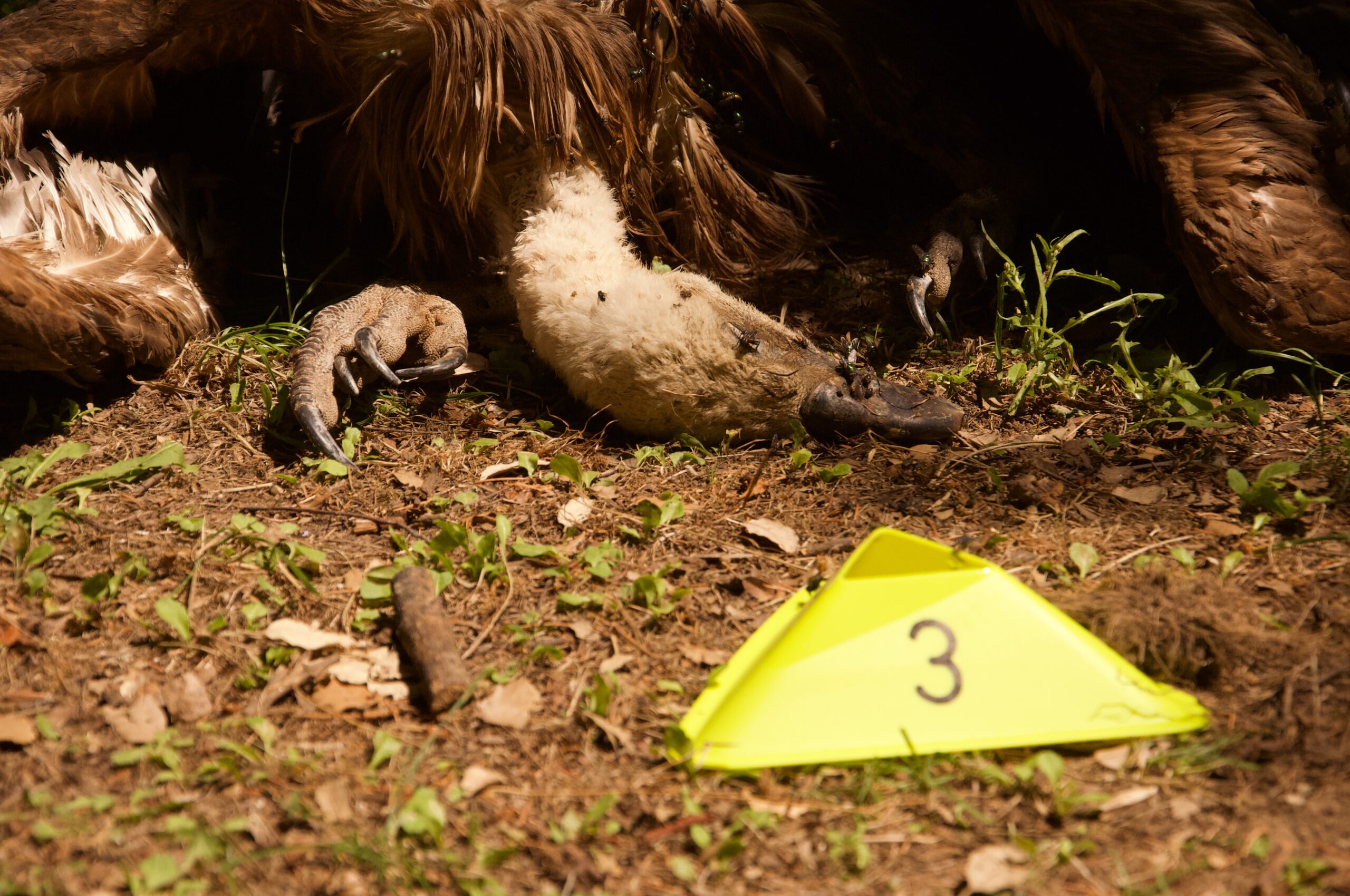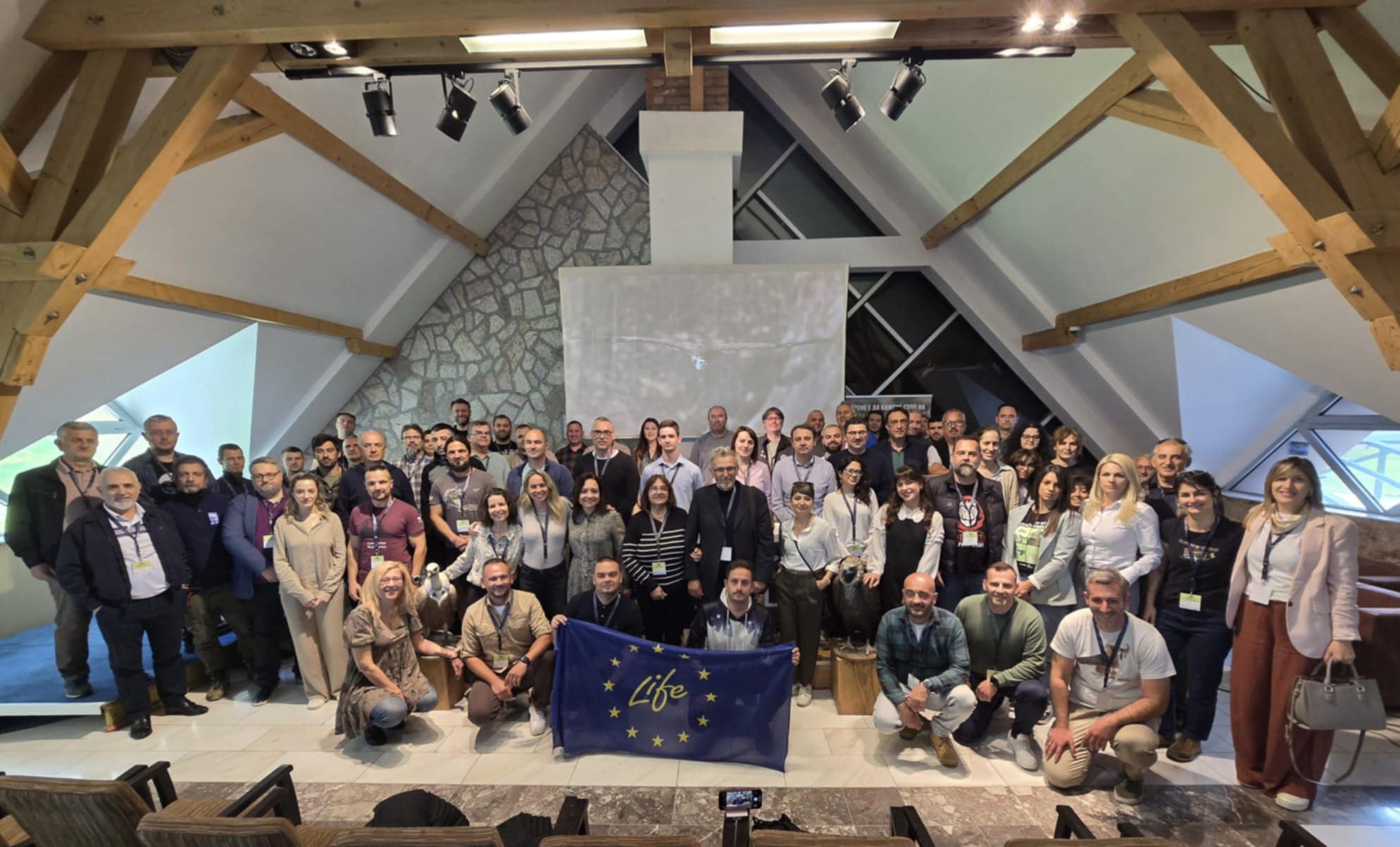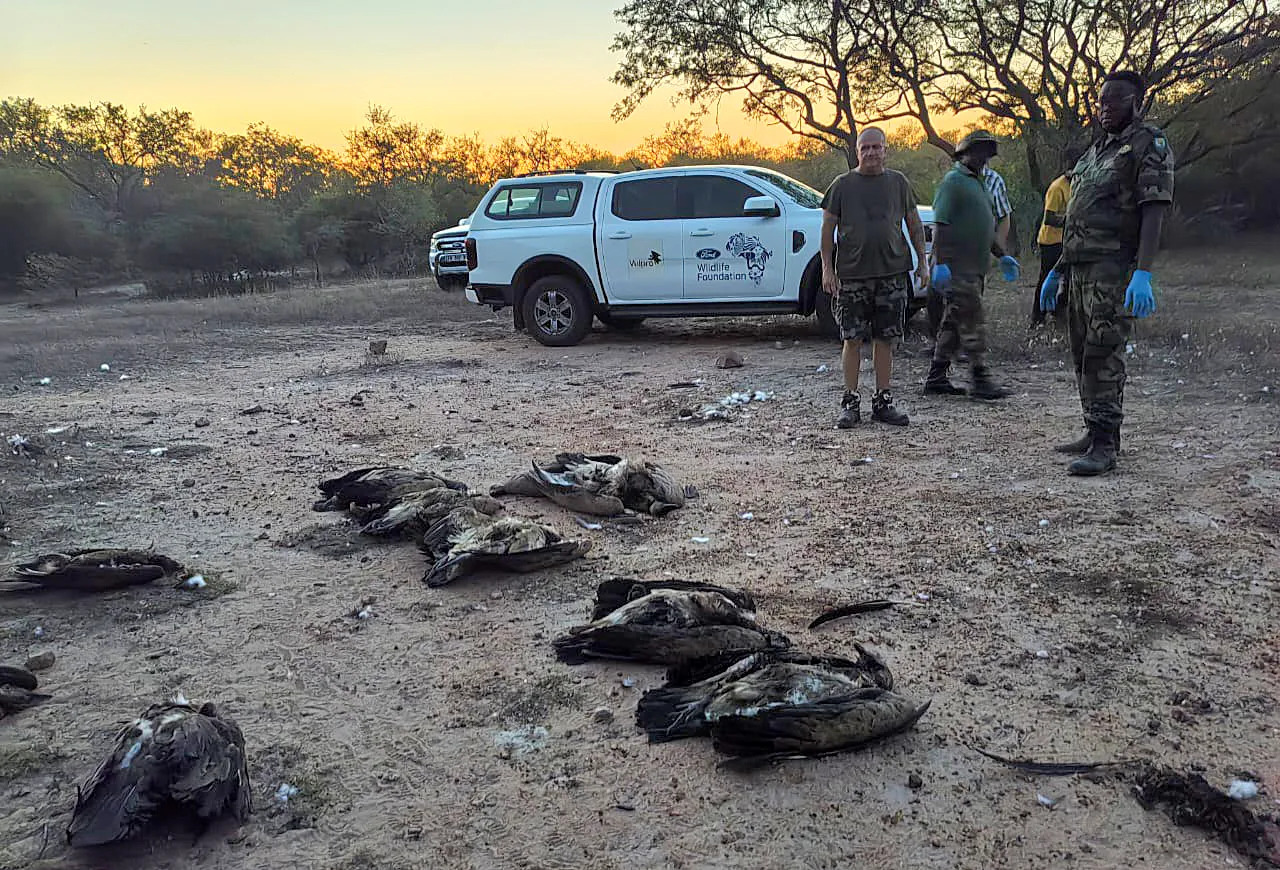The BalkanDetox LIFE project continues to lead the charge against illegal wildlife poisoning—a destructive practice that harms wildlife, jeopardizes human health, and disrupts ecosystems across the Balkans. In its fourth year of operation, this ambitious five-year initiative, spanning across seven countries, achieved impressive milestones in 2024, strengthening efforts to protect biodiversity, raise awareness, and enhance regional cooperation.

Understanding the wildlife poisoning crisis
Illegal poisoning remains the number one cause of death for vultures and other threatened species in the Balkans. Despite being illegal, poison baits are still used to target predators, stray animals, or domestic animals viewed as threats to livestock, crops or game. This indiscriminate method often claims unintended victims, including protected species like vultures that scavenge on poisoned carcasses. Over the past two decades, it’s estimated that at least 2,300 vultures have died from poisoning in the Balkans—a tragic toll on these crucial scavengers.
What is BalkanDetox LIFE?
Launched in 2020, BalkanDetox LIFE is on a mission to reduce wildlife poisoning by 20% across seven Balkan countries: Albania, Bosnia and Herzegovina, Bulgaria, Croatia, Greece, North Macedonia, and Serbia. Backed by funding from the EU LIFE Programme and co-financed by the Vulture Conservation Foundation (VCF) and other partners, the project focuses on building institutional capacity, fostering cooperation, and educating communities to tackle this pervasive issue.
2024: A Year of key achievements
Standard Operational Protocols
In 2024, the project reached a critical milestone with the Standard Operational Protocols (SOPs) for handling wildlife poisoning cases being officially submitted for adoption in Bosnia and Herzegovina, while the National Anti-Poisoning Working Groups (NAWG) in North Macedonia finalized the SOP, which was then officially adopted. These SOPs are important in paving the way for more effective and streamlined investigations.
National Anti-Poisoning Road Maps (NARM)
Progress was also made on National Anti-Poisoning Road Maps. Bosnia and Herzegovina submitted its finalized road maps for endorsement, while Croatia integrated its work into a broader National Action Plan against Wildlife Crime, ensuring a more sustainable, long-term strategy.
Training and workshops
Training was a major focus in 2024. The project conducted 12 national courses on investigating wildlife poisoning, equipping over 250 enforcement officials with essential skills. Additionally, 10 specialized workshops for public prosecutors and judges trained more than 100 participants on prosecuting wildlife crime.



Educational campaigns
To address poisoning at its roots, the team organized four workshops in regions where poisoning is most common. These sessions highlighted the dangers to both wildlife and public health. To further spread awareness, informational videos in seven different languages were released, offering practical advice on how to respond to suspected poisoning incidents.
Institutional developments
A groundbreaking achievement came in Albania, where a Special Department for Environmental Crimes was established within the State Police. This accomplishment, which was also driven by BalkanDetox LIFE’s advocacy, sets a strong precedent for other Balkan countries.
Knowledge exchange and networking
Regional collaboration received a significant boost with the project’s co-hosting of the International Wildlife Crime Conference in Cyprus. This event brought together enforcement officers, forensic pathologists, and public prosecutors to share expertise on tackling wildlife poisoning, illegal trapping, and other crimes, and created opportunities for collaboration.

Technological innovations
In 2024, the project rolled out a new early-warning system developed with the EarthRanger software solution. This cutting-edge tool tracks the movements of tagged vultures and sends out alerts to possible mortality events based on the date transmitted through the GPS devices on the birds. This helps us to react preventively on the field and alsoidentify potential poisoning hotspots. Currently in the testing phase, the new monitoring system will soon be available to project partners and relevant stakeholders, offering a powerful new resource for conservation efforts.
Monitoring and data
National databases for wildlife poisoning incidents were updated throughout the year, and the 2023 annual poisoning incident report was widely distributed. Additionally, by monitoring the behaviour of tagged vultures, the project gathered critical data to inform conservation strategies and respond quickly to potential poisoning events.
Looking ahead
The achievements of 2024 reflect the dedication of the BalkanDetox LIFE team and its partners. As the project moves into its final year, the focus will shift toward completing remaining deliverables, evaluating the socio-economic impact of its actions, and hosting a Closing Conference in Sjenica, Serbia, in May 2025.
By strengthening national capacities, fostering collaboration, and raising public awareness, the BalkanDetox LIFE project is leaving a lasting legacy in the fight against wildlife poisoning. Thanks to these efforts, vultures and other wildlife across the Balkans have a brighter future ahead.
The BalkanDetox LIFE project

The ‘BalkanDetox LIFE‘ project aims to strengthen national capacities to fight wildlife poisoning and raise awareness about the problem across Albania, Bosnia & Herzegovina, Bulgaria, Croatia, Greece, the Republic of North Macedonia and Serbia. It is a five-year endeavour with a €1.8 million budget that received funding from the EU’s LIFE Programme and co-funding by the Vulture Conservation Foundation, the MAVA Foundation and Euronatur. Project partners are the Vulture Conservation Foundation as the coordinating beneficiary, and the Albanian Ornithological Society, Association BIOM, Bird Protection and Study Society of Serbia, Fund for Wild Flora and Fauna, Hellenic Ornithological Society, Macedonian Ecological Society, Ornitološko društvo NAŠE Ptice and the Protection and Preservation of Natural Environment in Albania as associated beneficiaries. Furthermore, this project is based on Spanish best practice experience and counts on the support from the Junta de Andalucía and the Spanish Ministry for the Ecological Transition and the Demographic Challenge.




